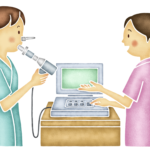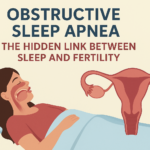BY Dr.Manvir Bhatia & Ananya-Neurology & Sleep Centre
All of us have a good idea of how those days feel when we want to do nothing. The laziness that seeps in makes us feel unenergetic and we often say, “I don’t know why I am feeling so tired today”. Experiencing this once in a while is normal, but if this becomes a regular thing, it might require more attention.
In layman’s terms, fatigue is a well-known feeling of overall tiredness and lack of energy. It is used to describe a decrease in physical activity and the real or perceived difficulty in performing a task. There isn’t a single mechanism or factor that can induce or increase stress. It is a complex mechanism and involves abnormalities of the CNS, PNS dysfunction, or any skeletal muscle disease.
Fatigue affects our physical, cognitive, and emotional condition. It also negatively impacts our work, relationships, and social behavior. There is a close relationship between physical and mental stress but, there are different pathophysiological mechanisms causing the same.
Mental fatigue is a state of reduced mental alertness. It impairs one’s performance at work. It mostly occurs as a result of working on a cognitively demanding task for a long period of time. Physical fatigue is the decrease in the efficiency of the skeletal muscles. It occurs due to a variety of underlying conditions such as metabolic disorders, neuroendocrine dysfunction, etc.
Classification of fatigue:
Secondary fatigue – it may be caused by an underlying medication that may last for about a month or longer. It generally lasts for less than six months.
Physiologic fatigue – it is due to the imbalance in the daily routines of exercise, sleep, diet, etc., and not due to some underlying medical condition.
Chronic fatigue – it is a very severe form of fatigue and lasts for more than six months. It is not relieved by stress. It severely deteriorates the quality of life and the rate of recovery is only around 5%.
Causes of fatigue:
Stress: stress and fatigue are deeply correlated. A very high relation has been observed between fatigue, tension and lack of joy. Low socioeconomic status and poor self-perceived overall health are the two major causes of stress, causing fatigue.
Depression – Mental fatigue is mostly the outcome of partially treated depression. Medications used in the treatment of depression also induce fatigue.
Sleep: Sleep is an extremely important part of life. Incomplete or poor-quality sleep makes the brain tired, negatively affecting our health and concentration. Getting a good quality sleep of 7 to 8 hours regularly is necessary. A person suffering from sleep apnea gets disturbed sleep and might always feel tired.
Neurological disorders: There are neurological disorders like Parkinson’s, multiple sclerosis, myasthenia gravis, traumatic brain injury, etc., that are associated with fatigue. Around 83% of patients with multiple sclerosis experience fatigue as one of the most common symptoms. Damage of brain structures and lesions in the CNS in the case of MS causes fatigue.
Diet: A healthy balanced diet helps us maintain overall good health. Eating too little or too much deep-fried junk food makes us sluggish and irritable. Fatigue can also be caused by dehydration and excessive caffeine intake. Sometimes an individual might be unaware of mild allergies we have from a certain food. Having those food items can make us feel very tired.
Medications: Medication classes that are commonly associated with fatigue, although sometimes only in the first week or two of use, include sedative-hypnotics, antidepressants, muscle relaxants, opioids, antihypertensives, antihistamines, and many types of antibiotics.
Anemia: This is one of the main causes of fatigue in women. Red blood cells are important because they carry oxygen to tissues and cells, thereby providing us with energy via complex cellular mechanisms. Loss of RBCs during the menstrual blood flow often leads to iron deficiency, putting women at a higher risk. Anemia due to GI tract bleeding is also a cause.
Thyroid: People suffering from hypothyroidism tend to be very sluggish and inactive due to a decrease in basal metabolism. In the case of hyperthyroidism, the basal metabolism speeds up. This overactivity causes fatigue.
Diabetes: Diabetes is the abnormal levels of sugar in the blood. This high level remains in the blood as it does not enter the cells to be further converted into energy. It may persist even after the normal glycemic levels have been achieved.
Hidden UTI: Burning pain and a sensation of urgency are the common symptoms of UTI. But, the symptoms might not always be the same. In some cases, fatigue might be the only symptom.
Cardiovascular diseases: Sometimes people experience a sudden flash of fatigue while performing regular activities. This may be an indication of the fact that our heart is not functioning efficiently. Fatigue often is the first clinical manifestation of any sort of cardiovascular disease.
Diagnosis of fatigue:
As mentioned earlier, there isn’t a single cause of fatigue. It is a multidimensional and nonspecific condition. Therefore, an individual with complaints of tiredness needs to be diagnosed with fatigue with the help of a questionnaire. This actually helps a physician to differentiate between sleepiness and fatigue. Once fatigue is confirmed, it becomes important to screen for unhealthy lifestyle choices, underlying health conditions, and the mental state of the person. In case of unexplained fatigue, laboratory tests such as complete blood count, thyroid, pregnancy, HIV, etc. should be conducted.
Management:
- Medications that might be the cause of fatigue must be replaced or discontinued if possible.
- In case of any diseases associated with anaemia, the haemoglobin level of the patient must be maintained at least at 10g/L.
- Regular moderate aerobic exercise(e.g. 30 minutes of brisk walking, yoga etc.) is very helpful for improvement.
- Psychostimulants are helpful for short term management of fatigue.
- Adequate sleep, good sleep hygiene, increase in engagement in various activities in the daytime, increasing exposure to sunlight, taking a bath within two hours of sleep etc. are some steps that should be taken to reduce physiological stress.
Conclusion:
Fatigue is a very common symptom in our lives. If not managed well, it decreases our efficiency, thereby affecting our performance at work, home, etc. Hence, getting to the root cause of it becomes a priority. Treating the underlying medical condition urgently becomes a priority. Addressing unexplained fatigue is a real challenge. It requires the support of medical practitioners, family, and society.
References:
Manjaly, Z. M., Harrison, N. A., Critchley, H. D., Do, C. T., Stefanics, G., Wenderoth, N., … & Stephan, K. E. (2019). Pathophysiological and cognitive mechanisms of fatigue in multiple sclerosis. Journal of Neurology, Neurosurgery & Psychiatry, 90(6), 642-651.
Targum, S. D., & Fava, M. (2011). Fatigue as a residual symptom of depression. Innovations in clinical neuroscience, 8(10), 40–43.











